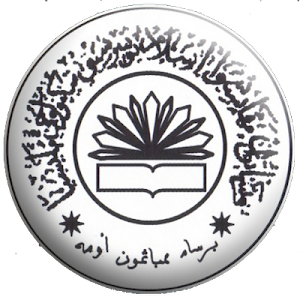Sebagai penganut Islam, kita patut bersyukur kerana di beri hidayah dan cahaya untuk menerima dan mengakui keESAan Allah swt. Tidak perlu kita membandingkan Islam dengan agama yang lain. Terlalu banyak pekara di dalam Islam yang dapat kita buktikan Islam sebagai agama yang BENAR.
Hebatnya Islam, tidak hanya di permukaaan atau pada fizikalnya. Tetapi Islam perlu dikupas dalam lapisan-lapisan yang lebih dalam umpama lapisan sebiji bawang merah yang ditutup dengan setiap lapisan kulitnya yang nipis.
Kerana itu terdapat terlalu banyak pendapat dan pandangan yang berlainan antara setiap isu yang hadir dalam Islam. Malahan dalam aliran Islam sendiri, terdapat empat aliran yang banyak dibahaskan seperti syariat, tarikat, hakikat dan makrifat. Makanya, setiap pekara di dalam Islam mempunyai empat kupasan yang berbeza dari sudut pandangannya TETAPI masih sama dalam konteks INTInya.
Al Quran sendiri mempunyai BANYAK cerita dan maksud yang boleh dikupas dan ditafsirkan. Baik dari sudut fizikalnya, dari sudut maksudnya dan dari sudut rahsianya yang hanya difahami oleh mereka yang ahli di dalamnya.
Begitu juga PUASA. Dari sudut fizikalnya ia adalah satu rukun Islam yang wajib kita lakukan. Banyak hikmah yang kita perolehi seperti merehatkan tubuh badan dari kerja teruk 11 bulan setiap hari. Selain kita juga dapat merasai betapa peritnya menahan lapar bagi mereka yang tidak berkemampuan.
Tetapi dari sudut lainnya, PUASA adalah satu latihan dan teknik yang ditunjukkan Allah swt untuk kita belajar cara “memprogramkan” semula banyak “tabiat fizikal dan mental” yang ada pada diri manusia tanpa mereka sedari. PUASA adalah satu amalan memprogramkan minda separa sedar yang telah disetkan (atau di AUTO kan) setiap hari oleh individu.
Kalau sebelum ini, setiap pagi kita akan bersarapan, makan tengahari, menghisap rokok, berbual-bual pekara yang tidak elok… Allah menunjukkan manusia bahawa PUASA adalah bukti bagaimana tabiat manusia boleh diprogram semula jika benar-benar menginginkannya.
Pernahkah kita terfikir kenapa PUASA perlu dilakukan selama sebulan? Hari ini kajian sains menunjukkan manusia memerlukan paling kurang 21-30 hari untuk kita mengubah tabiat dan sikap yang kita tidak inginkannya.
Itu uniknya Islam. Maka tak salah pendapat mengatakan kemajuan sains hanya membuktikan kehebatan dan keunggulan agama Islam itu sendiri.
Pernahkah manusia terfikir kenapa diwajibkan sesiapa yang ingin bertahajud untuk tidur barang sebentar?….Kajian sains neuro membuktikan saat awal bangun tidur, gelombang otak berada pada tahap alpha-theta iaitu satu tahap gelombang minda yang sangat baik untuk berdoa, memohon impian, menghubungkan kerohanian, menggunakan kekuatan mental, mengaplikasikan teknik-teknik kuasa minda seperti affirmasi, visualisasi dan sebagainya.
Tak percaya lagi hebatnya Islam?…kerana itu Islam perlu dikupas dari fizikalnya, dari sudut hakikatnya dan ke sudut kerohanian yang mendalam.



